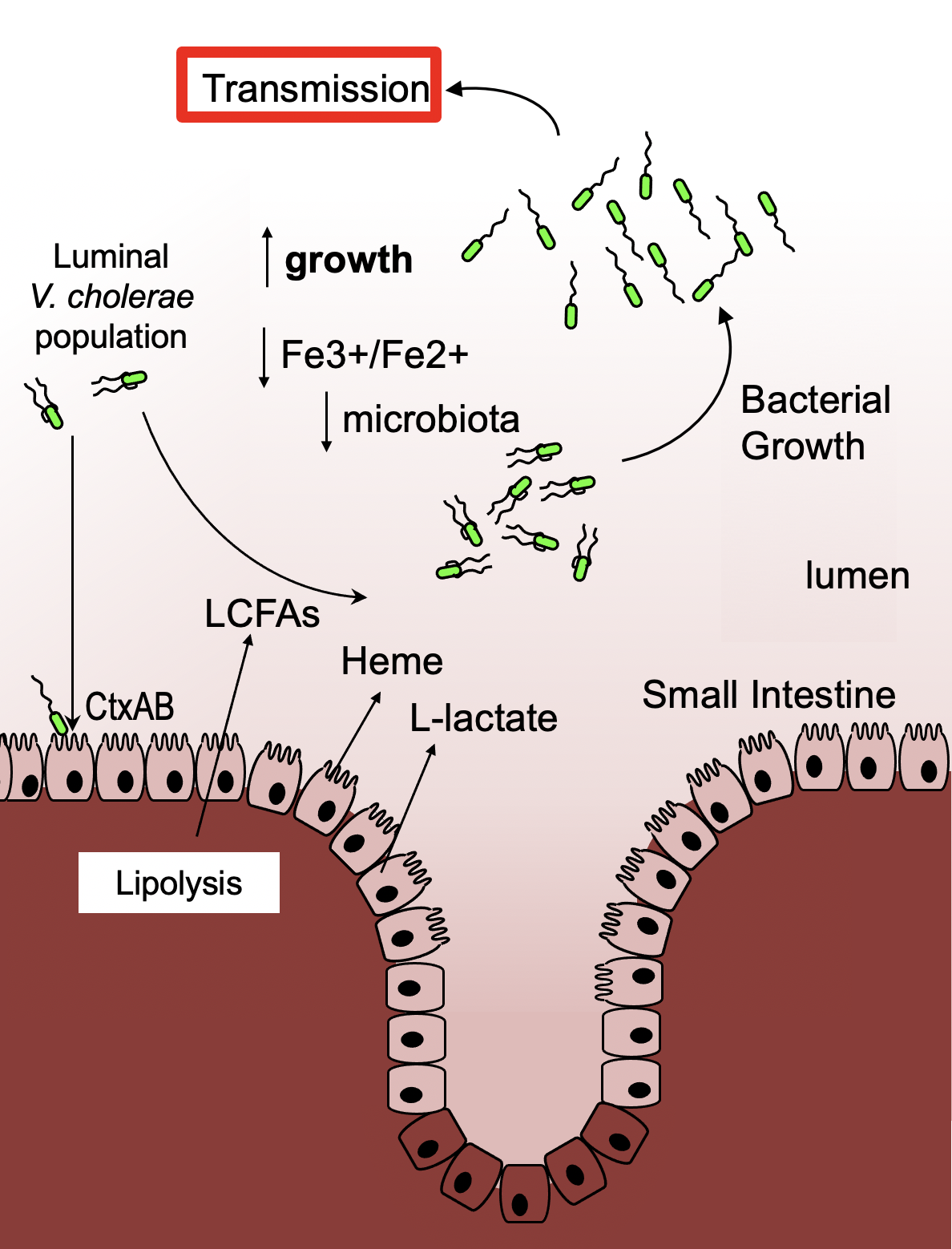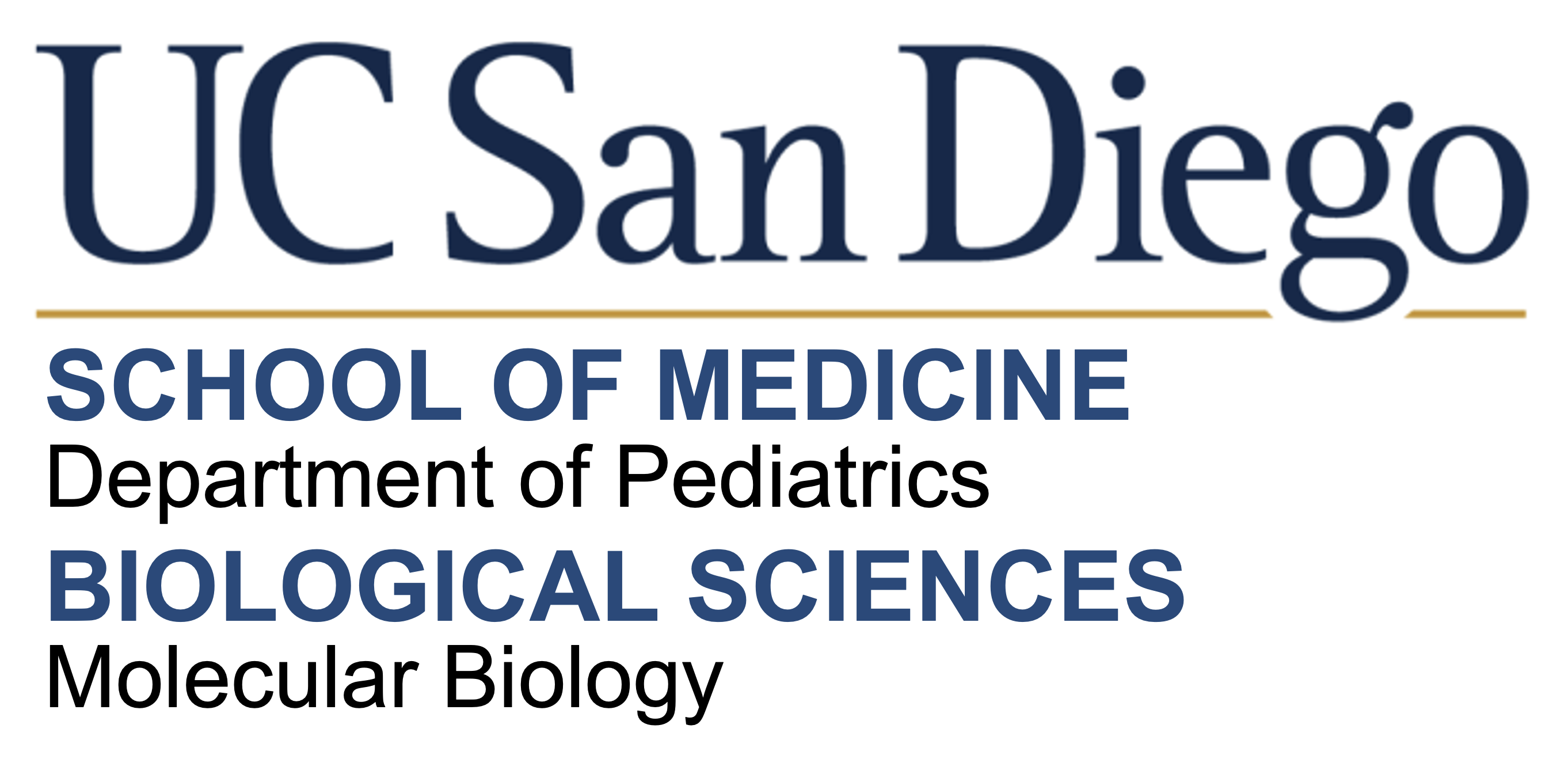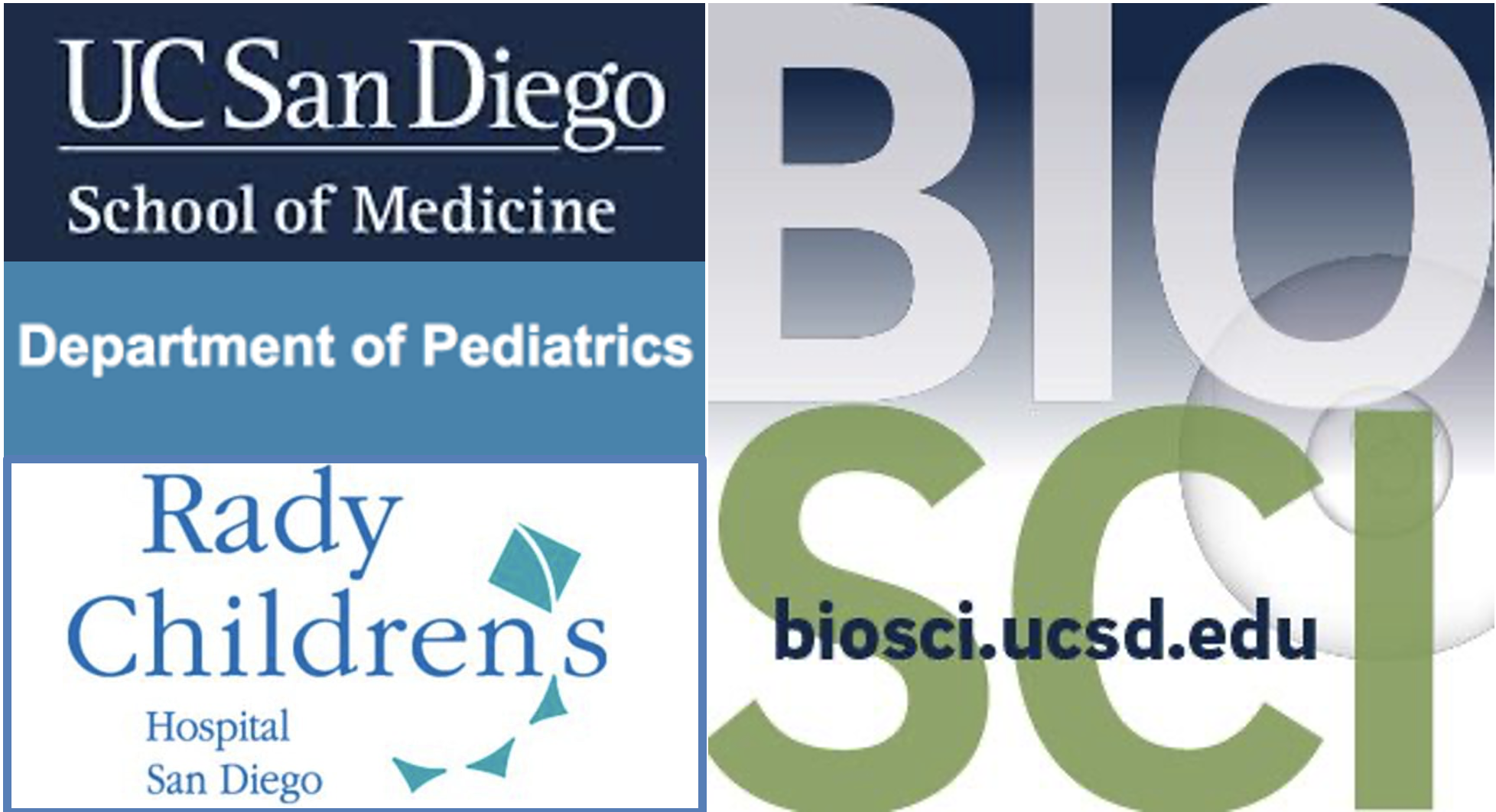Background
Host-to-host transmission is essential for pathogen success and therefore the molecular processes governing transmission are under strong evolutionary pressure. The ability for enteric bacterial pathogens to reach high concentrations in the gastrointestinal tract is required for efficient fecal-oral transmission. During infection of both humans and animals, V. cholerae outcompetes the intestinal microbiota and reaches high concentrations in the gut. The severe diarrheal disease caused by CT is thought to be important for the transmission of V. cholerae, as infected individuals can shed up to 20 liters of diarrheal fluid per day typically containing over 1011 organisms per liter.
Bacterial Toxins and Pathogen Transmission
Previously, we discovered that CT produced by V. cholerae during infection induces a specific transcriptome signature that promotes the pathogens growth through host-derived nutrient acquisition. These findings indicate that besides promoting diarrheal disease, CT may be enhancing fecal-oral transmission by a previously undescribed mechanism involving V. cholerae gene induction and growth (See Figure). Using in vivo RNA-sequencing, we have identified 243 genes that were significantly upregulated in wild-type compared to the CT-mutant during colonization of ileum and cecum, including genes involved in metabolism and heme acquisition (Rivera-Chavez et al, 2019). Interestingly, while 101 genes were upregulated during colonization of the ileum where CT is expressed, 118 unique genes were upregulated in V. cholerae after transition to the large intestine (cecum). We are testing whether CT-induced disease promotes pathogen transmission by modulation of host-microbe metabolism.



